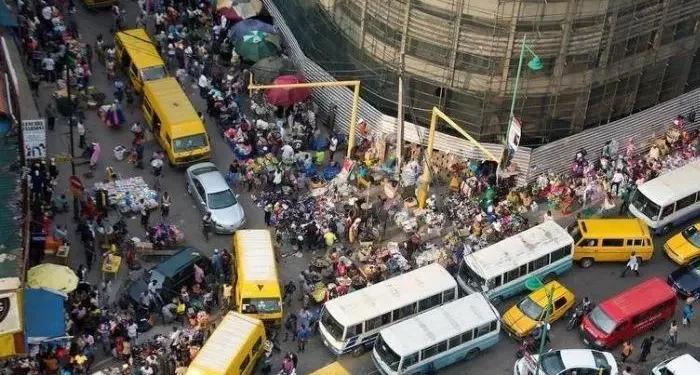Why inflation is cooling “everywhere” else but Nigeria
The prices of goods and services are rising in Nigeria at a time when inflation is cooling in several other countries whether it’s the U.S., the UK or even Ghana.
UK inflation halved to 4 percent in October while US inflation eased to 3.2 percent after peaking at 9.06 percent in June 2022, the highest level in four decades. Ghana inflation also decelerated to 35.2 percent from 38.1 percent in September.
In the same period, Nigeria’s headline inflation rose for the tenth consecutive month to 27. 33 percent, an 18-year high.
This slowdown in inflation seen in other economies is in response to the continuous rate hikes and other monetary tightening strategies employed by central banks across the world.
Similar trends of easing inflation were also observed in Canada, China and India, bringing inflation closer to its pre-pandemic levels.
But the Central Bank of Nigeria has also raised rates by a record 725 basis points from 11.5 percent in early 2022 to its current level of 18.75 percent. Yet inflation has not budged.
Analysts say there are local factors responsible for the persistent rise in inflation despite the Central Bank of Nigeria’s hawkish move in raising rates.
KPMG in its recent note described Nigeria’s inflation to be cost-push inflation and said it’s the reason why monetary policies by the CBN have not curbed rising inflation.
“We also note that sustainably taming inflation would require not only monetary responses which are generally more apt for addressing demand-pull inflation, but also addressing underlying supply-side problems driving cost-push inflation. This may require focusing on ways to boost local production, improve local infrastructure, cut energy and transportation costs, and boost foreign exchange inflow,” it said.
“Cost-push inflation is the result of an increase in the cost of production inputs,” Zeal Akaraiwe, CEO of Graeme Blaque advisory, said.
He said that cost push inflation is driven by a couple of components and in Nigeria’s case it can be broken down into the cost of production furthermore into three particular costs which are “FX rate, Interest rate wages and other costs.”
“If you, therefore, effect any policy that ends up increasing any of these cost components in a cost-push inflationary environment, you will be, as we say, “pouring petrol on a fire”, Akaraiwe said.
In the past 18 months, in our current cost-push inflationary climate, Nigeria has seen increased input costs of the two major input components – foreign exchange rates and interest rates – by up to 100 percent and 40 percent, respectively.
Petrol subsidy removal
President Bola Tinubu’s announcement of the petrol subsidy removal during his inauguration immediately led to a significant surge in fuel prices across the country, with an average increase of 174.6 percent within a span of three hours.
The removal of the fuel subsidy tripled the petrol price to N617 from N184, causing public transportation providers such as buses, tricycles and motorcycles to raise transportation fares.
Financial Derivatives Company Limited (FDC), led by economist Bismarck Rewane, said in their September economic bulletin that “with prices rising, fingers are pointing towards the exchange rate as the major inflation culprit.”
The naira crossed the psychological threshold of 1,000/$ in the parallel market, pushing up imported inflation despite the relative stability in global food prices.
Prices of other deregulated fuels such as diesel, and household kerosene also increased by 37.1 percent and 12.8 percent to N890.8 per litre and N1,299.0 per litre, respectively. Consequently, the rise in fuel prices has resulted in higher transportation costs.
Naira devaluation rate pass-through effect
On June 14, 2023, the CBN announced the unification of all exchange rate windows into the Investors and Exporters window (IEFX), effectively devaluing the naira by 39.4% in a bid to bridge the wide gap between the official and the parallel market, which was around N750/$1 at the time.
However, allowing the market to determine the rate without adequate supply in the IEFX window to support pent-up demand, has sparked constant volatility in the black market as the naira traded as high as N1130/$1.
At the parallel market, the Naira touched an all-time low of N1,300/$ on October 25 before appreciating to N1,115/$ as the CBN commenced the settlement of some of its backlog of matured Non-Deliverable Forwards.
Due to Nigeria’s high demand for imports, the depreciation of the naira exchange rate has significantly impacted key components of Nigeria’s inflation basket.
According to FDC, the price of imported commodities increased by an average of 15.36 percent in October despite the decline in the global food price index by 0.5 percent to 120.6 points. This is mainly because of the depreciation in the value of the Naira.
CBN’s Ways & Means
While Nigeria’s inflation is majorly cost-push, the excess printing of naira through the Ways & Means increased money supply and triggered a flight to dollars.
Muhammad Sanusi II Lamido, former governor of the Central Bank of Nigeria said the apex bank’s lending to the federal government under the administration of former President Muhammadu Buhari through Ways and Means created inflationary pressure in Nigeria and weakened the value of the Naira.
Ways and Means is a way in which the federal government raises funds by borrowing from the CBN.
The CBN’s loan to FG in value terms rose to N26.94 trillion in May 2023 from N24.07 trillion in January 2023, according to the data from the CBN.
The IMF had long recommended the reduction of overdrafts by the CBN to the federal government. Overdrafts are essentially loans that the government takes from the CBN to pay for its expenses. These loans can be inflationary, as they increase the amount of money in circulation
“Lower reliance on CBN overdrafts and full sterilization of any CBN financing of the fiscal deficit and limiting its use only for short-term liquidity management,” it said.
The IMF said the CBN should also fully sterilize any future financing of the government’s budget deficit. This means that the CBN should take steps to offset the inflationary effects of any loans it provides to the government. For example, the CBN could sell government bonds to absorb excess liquidity from the market.
It noted that the CBN should also fully sterilize any future financing of the government’s budget deficit. This means that the CBN should take steps to offset the inflationary effects of any loans it provides to the government. For example, the CBN could sell government bonds to absorb excess liquidity from the market.
In May 2023, before Buhari left office, the Ways and Means were securitised after the House of Representatives approved the request by the former President to restructure the N22.7 trillion loan from the CBN.









